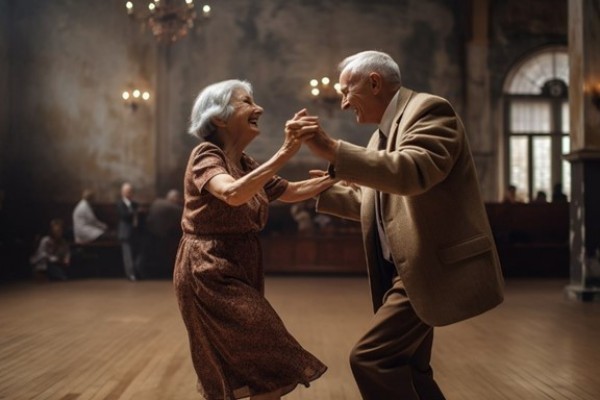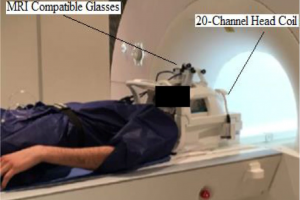Dance Sessions Elevate Health and Well-being in 85+ Age Group
Regular dance sessions can significantly benefit individuals over 85 years old, enhancing their physical activity, social interactions, and personal sense of youth.
The “Dance On” project engaged 685 participants aged 55 and older in weekly dance classes over a 12-month span. By the end of the trial, participants exhibited an increase in physical activity, maintained over the entire year. Participants’ well-being improved, with many reporting feeling stronger, more confident, and “years younger.”
Regular dance sessions can benefit people over 85 by helping them be physically active, socialize, and reconnect with their younger selves, according to new research led by the University of Leeds.
The “Dance On” project was run by researchers from the University’s School of Biomedical Sciences, along with One Dance UK, Yorkshire Dance and darts, Doncaster’s participatory arts charity. It found that even people considered the “oldest old”—over 85—can benefit from regular dance classes to improve their well-being and mobility.
The classes, which took place across Leeds, Bradford and Doncaster, welcomed 685 people over the age of 55 to weekly dance classes over a 12-month period. With an average (mean) age of 75, more than a third of people who took part were from highly deprived communities.
For older people, dance can help connect with previous experiences of dance when they were younger, encouraging enjoyment and a sense of community, they added. Credit: Neuroscience News
Dr. Sarah Astill, Associate Professor in Motor Control in Leeds’ School of Biomedical Sciences led the University research team. She said, “Physical inactivity is recognized as one of the main risk factors for non-infectious diseases and mortality. Over time there has been a decline in physical activity in older adults, and this is particularly apparent in people over 75 years of age. Opportunities to engage adults in physical activity are a global priority as they support healthy aging and slow progression of disease and disability.”
She added, “We show that dance delivered across a range of socially economically diverse communities, is a feasible way to get older adults physically active. This is evident even for the ‘oldest old’ at 85+years.”
At the end of the trial, the researchers found that people who had taken part increased the amount of physical activity they did each week, and kept this up over the 12 months.
Their views on their own well-being also improved, with participants saying they felt stronger, more confident and “years younger.”
One participant in Doncaster said, “After a Dance On session, I feel exhausted but brilliant! I’m a lot better now than I’ve ever been.”
Another added, “It’s really changed my lifestyle because since I retired, I think I was deteriorating. It’s certainly improved my lifestyle and I feel years younger in just the fact of the few months that I’ve been coming. I feel a lot better.”
The other organizations involved in the trial have also welcomed the positive results, with darts director Lucy Robertshaw saying, “The opportunity to take part in this research has been fantastic—we’ve gained real insight into the positive long-term impacts of sustained engagement in social dance and movement activity. It has been great to work collaboratively with the University of Leeds, One Dance UK and Yorkshire Dance regionally, and then with Doncaster Council’s Get Doncaster Moving program locally to embed the learning and explore ways to continue the Dance On program so that many more people can benefit.”
Andrew Hurst, CEO of One Dance UK, said, “Dance is such a powerful tool to support physical and mental health. We are delighted to see the publication of these important research findings highlighting the impact of the Dance On project in significantly increasing physical activity in more than 680 older adults from diverse communities across Leeds, Bradford and Doncaster.
“The Dance On project research report previously highlighted positive impacts on mental health including reduced anxiety and improvements in life satisfaction as a result of Dance On. One Dance UK is proud of and excited by the immense impact the work of our dedicated group of Dance On partners—darts, Yorkshire Dance and the University of Leeds—have been able to make in carrying out this important work.”
“Yorkshire Dance has been at the forefront of designing dance programs for older adults for many years. We’re delighted that Dance On is now an evidence-based program, demonstrating the effectiveness of taking part in regular dance activity as you age. We hope this leads to future investment in this valuable work which contributes to people living healthier, happier lives.”
In the research, published in BMC Geriatrics, the team reported that dance sessions are particularly accessible for people in deprived areas as classes can be organized cheaply and no special equipment in safe indoor environments. For older people, dance can help connect with previous experiences of dance when they were younger, encouraging enjoyment and a sense of community, they added.
The work—which began as a smaller project called “Dancing in Time” in 2015—is moving on with music and movement sessions now being delivered in care homes and Dr. Astill is set to present their findings at the International Society of Behavioral Nutrition and Physical Activity’s 2023 conference in Uppsala, Sweden, later this month.
The researchers also want councils, health officials and charities to think laterally about what type of activity they might promote or fund to help older people get active, and to consider dance as an accessible and effective option.





Related Posts